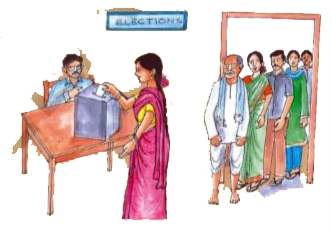The force applied on a body of mass 6 kg. is directly proportional to the acceleration produced in the body. Write an equation to express this observation and draw the graph of the equation.Solution in Tamil
Step by step video & image solution for The force applied on a body of mass 6 kg. is directly proportional to the acceleration produced in the body. Write an equation to express this observation and draw the graph of the equation. by Maths experts to help you in doubts & scoring excellent marks in Class 9 exams.
Updated on:21/07/2023Topper's Solved these Questions
- LINEAR EQUATIONS IN TWO VARIABLES BOOK - NCERT TAMILCHAPTER - LINEAR EQUATIONS IN TWO VARIABLES EXERCISE - EXERCISE 8.4
23 Videos
- LINEAR EQUATIONS IN TWO VARIABLES BOOK - NCERT TAMILCHAPTER - LINEAR EQUATIONS IN TWO VARIABLES EXERCISE - EXERCISE 8.5
12 Videos
- LINEAR EQUATIONS IN TWO VARIABLES BOOK - NCERT TAMILCHAPTER - LINEAR EQUATIONS IN TWO VARIABLES EXERCISE - EXERCISE 8.2
11 Videos
- GEOMETRY BOOK - NCERT TAMILCHAPTER - GEOMETRY EXERCISE - EXERCISE 4.7
20 Videos
- LINES AND ANGLES BOOK - NCERT TAMILCHAPTER - LINES AND ANGLES EXERCISE - THINK, DISCUSS AND WRITE
3 Videos
Similar Questions
In a election 60% of voters cast their votes. Form an equation and draw the graph for this data. Find the following from the graph.
(i) The total number of voters, if 1200 voters cast their votes
(ii) The number votes cast, if the total number of voters are 800

View SolutionGive the graphical representation of the following equation.
(a) On the number line and (b)On the Cartesian plane
(i) x = 3 (ii) y + 3 = 0 (iii) y = 4 (iv) 2x – 9 = 0
(v) 3x + 5 = 0
View SolutionFind three different solutions of the each of the following equations.
(i) 3x + 4y = 7 (ii) y = 6x (iii) 2x - y = 7
(iv) 13x - 12y = 25 (v) 10x + 11y = 21 (vi) x + y = 0
View SolutionThe exterior angle of a triangle is equal to the sum of two
View SolutionWhat is the difference between intersecting lines and concurrent lines ?
View SolutionYou know that the force applied on a body is directly proportional to the acceleration produced in the body. Write an equation to express this situation and plot the graph of the equation.
View Solutionआप जानते हैं कि एक पिंड पर लगाया गया बल पिंड में उत्पन्न त्वरण के अनुक्रमानुपाती होता है | इस स्थिति को व्यक्त करने वाला एक समीकरण लिखिए और समीकरण को आलेखित कीजिए |
View Solutionएक पिंड पर लगाया गया बल पिंड में उत्पन्न त्वरण के अनुक्रमानुपाती होता है | इस कथन को व्यक्त करनेवाला एक रैखिक समीकरण लिखें और अचर (जो कि पिंड का द्रव्यमान है) का मान 3 एकक लेते हुए समीकरण को आलेखित करें |
View Solution6 కి.గ్రా. ద్రవ్యరాశి గల వస్తువు పై బలాన్ని ప్రయోగించినప్పుడు అది పొందిన త్వరణము, ప్రయోగించిన బలానికి అనులోమానుపాతం లో ఉంటుంది. ఈ పేషీలను సరిపడు సమీకరణమును రాసి, దానికి రేఖ చిత్రమును గీయుము.
View SolutionThe force applied on a body of mass 6 kg. is directly proportional to the acceleration produced in the body. Write an equation to express this observation and draw the graph of the equation.
View Solutionआप जानते हैं की एक पिंड पर लगाया गया बल पिंड में उत्पन्न त्वरण के अनुक्रमनुपाती होता है। इस स्थिति को व्यक्त करने वाला एक समीकरण लिखिए और समीकरण को आलेखित कीजिए।
View SolutionThe force applied on a body of mass 6 kg. is directly proportional to the acceleration produced in the body. Write an equation to express this observation and draw the graph of the equation.
View SolutionThe force applied on a body of mass 6 kg. is directly proportional to the acceleration produced in the body. Write an equation to express this observation and draw the graph of the equation.
View SolutionThe force exerted to pull a cart is directly proportional to the acceleration produced in the body. Express the statement as a linear equation of two variables and draw the graph of the same by taking the constant mass equal to 6 kg. Read from the graph, the force required when the acceleration produced is
(i)5ms−2 (ii)6ms−2
View SolutionYou know that the force applied on a body is directly proportional to the acceleration produced in the body. Write an equation to express this situation and plot the graph of the equation.
View Solution
